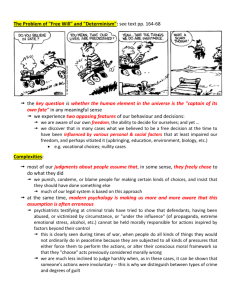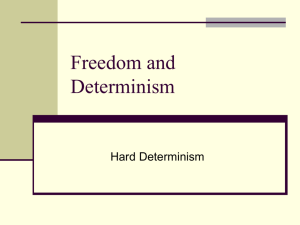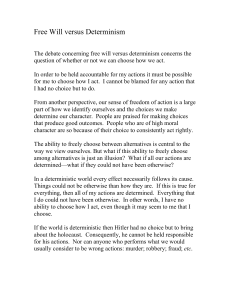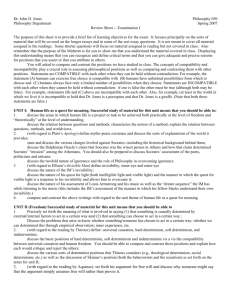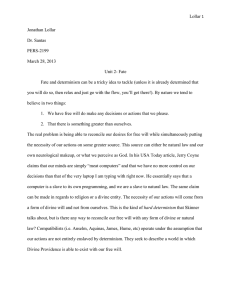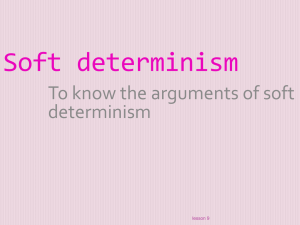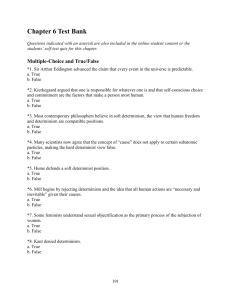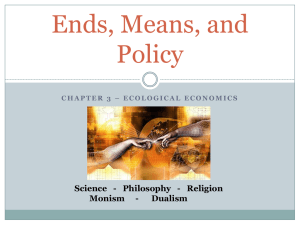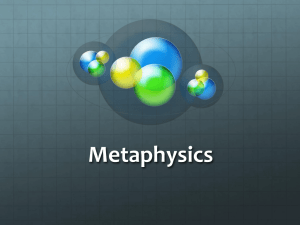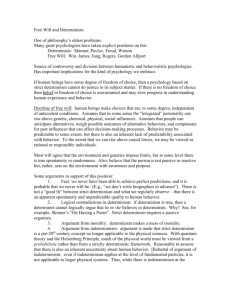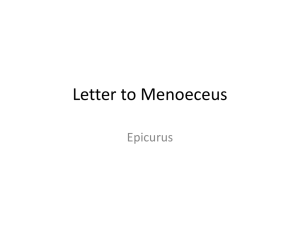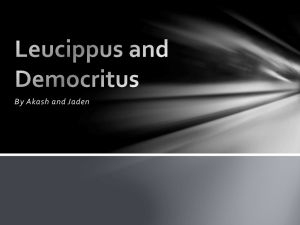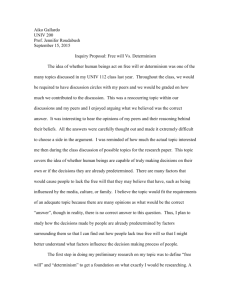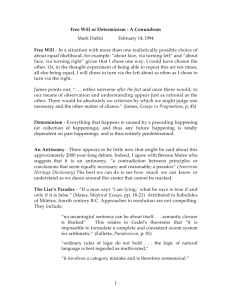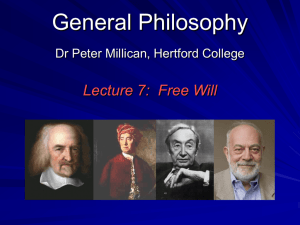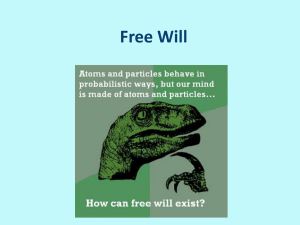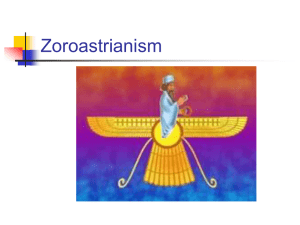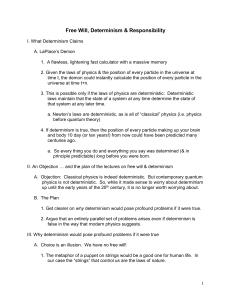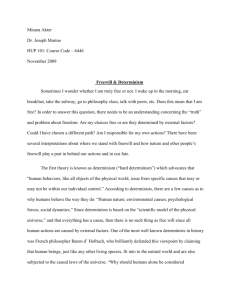Freedom
advertisement
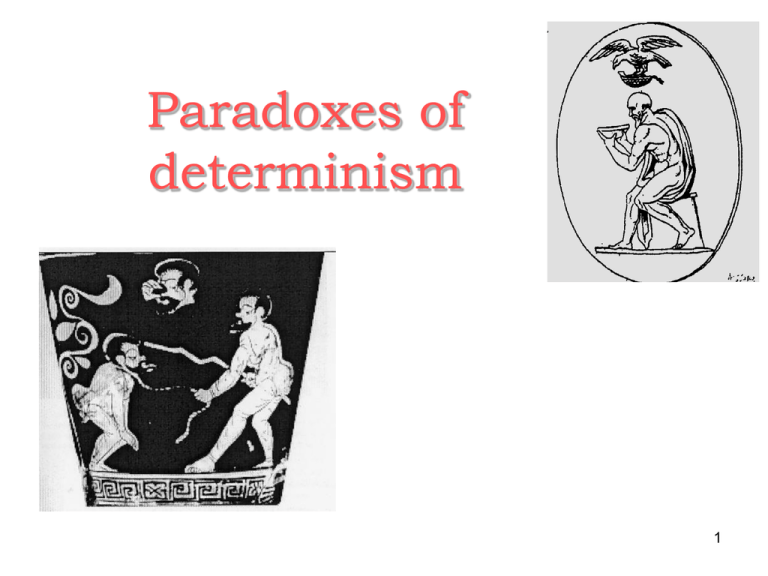
Paradoxes of determinism 1 Freedom … 2 Leucippus, Democritus World – physical system, mathematization of world, negation of divine providence, finality, supernatural acts, randomness and freedom … Nothing happens by vain but always from certain reason (LOGOS) and necessity (ANANKE). Leucippus Order of necessity - ANANKE and its impact 3 1. Absence of chance Ignorance ... The cause of destruction of scull of bald man was eagle, that dropped down tortoise to destroy its shell. A 68 from Simplicius People created image of chance to hidden their own ignorance. B 119 from Stobaius Higher origin of chance: It seems to somebody that chance is some kind of cause not apparent to human thinking. It seems to be something divine and in higher degree superhuman. Aristotle, Physics, II, 196,7 Chance is just, fair … 4 2. nonexistence of freedom („free will“) • No responsibility • Fatalism fate cause the force of necessity In the tale The Last Judgment by Karel Čapek people are judged by man – the judge. God is only witness, he cannot judge because he knows all. …“But I still don’t understand why you aren’t the judge,” Kugler said thoughtfully. “But why are they judging… the same people who were judges on earth?” “Because man belongs to man. As you see, I’m only the witness. But the verdict is determined by man, even in heaven. Believe me, Kugler, this is the way it should be. Man isn’t worthy of divine judgment. He deserves to be judged only by other men.” 5 Epicurus Parenclisis Randomness = freedom ? (casualizm) At the end Epicurus realised, that the aim of his way of explanation is serenity, self-realization, and not understanding of nature itself. Marx K., Thesis: „On the Differences between the Natural Philosophy of Democritus and of Epicurus“, 1841, p. 37 Eddington, Jeans: Parenclisis (swerving) in quantum mechanics – tychism (Pierce) 6 Stoics Freedom – mistaken concept – voluntarity comming from psychophysical dualism Omipotent LOGOS (however: causal consistency – epistemological instrument in GTR) Roots of dualism: Pýthagorean conception of soul Butterfly, girl, whole person, principle of motion, principle of life, principle of thinking, feeling, personality … Forms: I x world Selfperception x perception of outer world Pýthagoreans dualism Soul x physical body Platonism Body prison for soul … Descartes res cogitans x res extensa 7 We are free, as we can do everything we want to do, however we are also determined, as we must want what we want. Plótinos, Enneady III,2(47),10 Is determinism on contradiction with freedom? How can be people free if God in advance knows all they will do? … Knowledge of future do not část any necessity on what will hapen. It is the same like with knowledge of present things. Boёthius, Consolidation of philosophy, 5th book 8 Free will – misconception Will is not force, but feeling I control my behaviour Libet experiments – our brain decides what I will do some period of time (till 7 seconds!) before I will do my decision… Time of latence 9 Is determinism valid? Absolute determinism x “non absolute” Retrogradal determinism – determination of the past Ontological definition Is the future (of system, world) determined? What means „determined“? Epistemological definition Is it possible to know the future? “Informatic” definition of problem Are data concerning the future presend here now? Is is possible to get them? Gracus theorem? 10 Unpossibility of Laplace daemon: Butterfly effect Feetback phenomenon Relativistic limitations Quantum mechanics (?) Conclussion Ontological definition indefensible Only epistemological (meta)theory(property of epistemological systém All ya can do is do what you must. Bob Dylan 11
